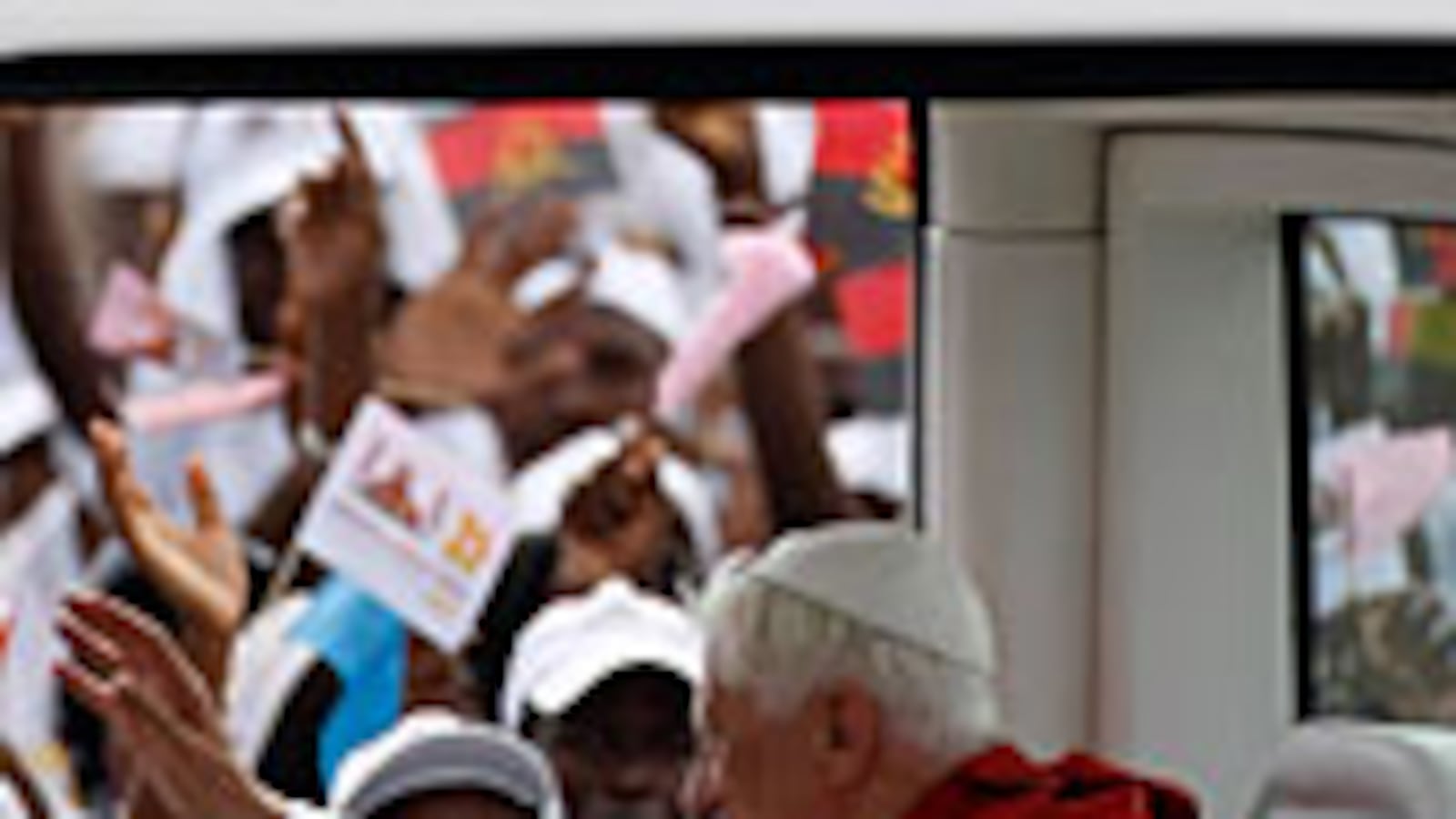
In 2000, Africa became the focus of orchestrated world-wide pity, and not for the first time. The Nigerian humanitarian catastrophe of Biafra in 1971 (the same year as the Beatle George Harrison’s Concert for Bangladesh) had demanded that the world respond to human catastrophe. Consciousness was raised several notches with Bob Geldof ’s July 1985 Live Aid Concert where, with 1.5 billion people watching, public discourse became a public disco.
Read an interview with Dead Aid author Dambisa Moyo
Live Aid had not only been triumphant in bringing Africa’s plight to the wider public; it also trumpeted an era of morality. In the run-up to the new millennium, crusades like the Jubilee Debt Campaign capitalized on people’s desperate desire to be a part of something that would give aid and development policy another dimension. African leaders such as Tanzania’s President Mkapa later encapsulated the feeling of the day in his speech at the Jubilee Debt Campaign Conference in February 2005, calling it a “scandal that we are forced to choose between basic health and education for our people and repaying historical debt.”
Thus, the way was paved for the army of moral campaigners—the pop stars, the movie stars, new philanthropists and even Pope John Paul II—to carve out niches for themselves, as they took on the fight for more, not less, aid to be sent to Africa, even after billions of dollars of debt were cancelled—in essence, cancelling debt on the one hand, and replacing it with a swathe of new aid, and thus the prospect of fresh debt all over again, with the other. The aid campaigners capitalized on the success of raising cash for emergency aid, and extended it to a platform to raise development aid; something entirely different.
In more recent times, the Irish musician Bono has made his case directly to the US President, George Bush, in a White House visit in October 2005, and Bob Geldof was a guest at the 2005 G8 meeting in Gleneagles, Scotland, and advised the UK’s Commission to Africa. It would appear, despondent with their record of failure, that Western donors are increasingly looking to anyone for guidance on how best to tackle Africa’s predicament.

Scarcely does one see Africa’s (elected) officials or those African policymakers charged with the development portfolio offer an opinion on what should be done, or what might actually work to save the continent from its regression. This very important responsibility has, for all intents and purposes, and to the bewilderment and chagrin of many an African, been left to musicians who reside outside Africa. One disastrous consequence of this has been that honest, critical and serious dialogue and debate on the merits and demerits of aid have atrophied. As one critic of the aid model remarked, “my voice can’t compete with an electric guitar.”
At the end of it all, it is virtually impossible to draw on Africa’s aid-led development experience and argue that aid has worked. The broadest consequences of the aid model have been ruinous. Rwanda’s President Paul Kagame put it most simply: “The primary reason [that there is little to show for the more than $300 billion of aid that has gone to Africa since 1970] is that in the context of post-Second World War geopolitical and strategic rivalries and economic interests, much of this aid was spent on creating and sustaining client regimes of one type or another, with minimal regard to developmental outcomes on our continent.”
As one critic of the aid model remarked, “my voice can’t compete with an electric guitar.”
Donors, development agencies and policymakers have, by and large, chosen to ignore the blatant alarm signals, and have continued to pursue the aid-based model even when it has become apparent that aid, under whatever guise, is not working. Even when aid has not been stolen, it has been unproductive. The proof of the pudding is in the eating, and ever so clearly the preponderance of evidence is on this side. Given Africa’s current economic state it is hard to see how any growth registered is a direct result of aid. If anything, the evidence of the last fifty years points to the reverse—slower growth, higher poverty and Africa left off the economic ladder.
For me, finding a sustainable solution to Africa’s woes is a personal quest. Having been raised in one of the poorest countries in the world, I feel a strong desire to help families like my own, who continue to suffer the consequences of economic failure every day of their lives. Throughout my professional and academic life as a student of economics I have pondered the question of development. I have often wondered, while other emerging regions have ostensibly turned the corner towards economic prosperity, why my continent has failed. This book is a consequence of my thoughts and deliberations over the years.
Although the Dead Aid thesis might be controversial, it carries an important message. The lives of billions rest on getting the right financing solutions to the problems of developing nations. After more than five decades of the wrong diagnosis, it is time now to turn the corner and take the harder but indisputably better road. It is the clarion call for change.
Excerpted from DEAD AID: Why Aid Is Not Working and How There Is a Better Way for Africa , by Dambisa Moyo, published this month by Farrar, Straus and Giroux, LLC. Copyright © 2009 by Dambisa Moyo. All rights reserved.
Dambisa Moyo worked at Goldman Sachs for eight years. Previously she worked for the World Bank as a consultant. Moyo completed a Ph.D. in economics at Oxford University and holds a master's from Harvard University's John F. Kennedy School of Government. She was born and raised in Lusaka, Zambia.






